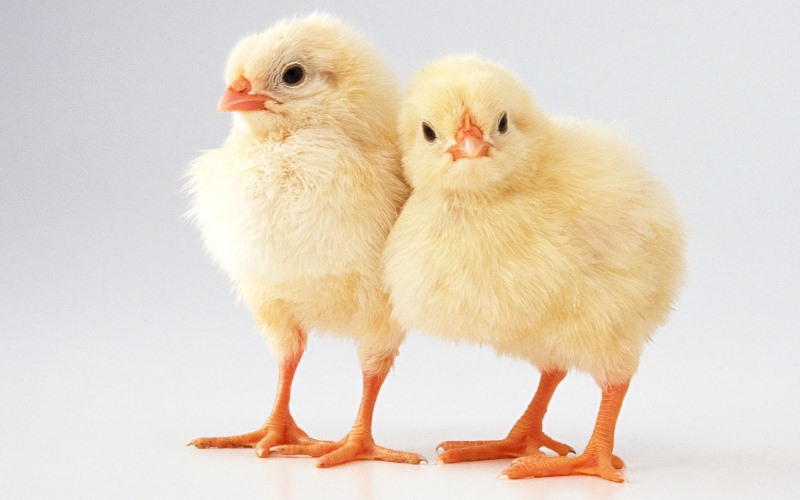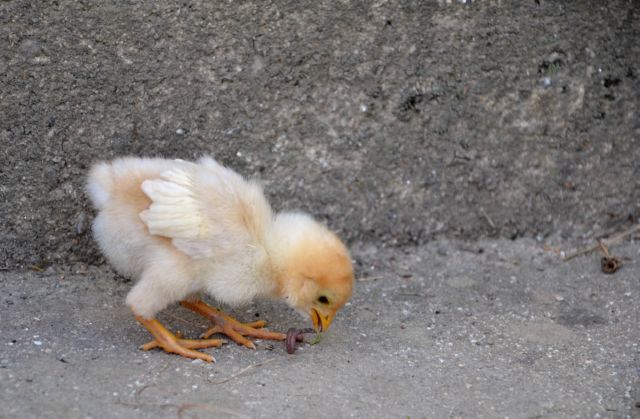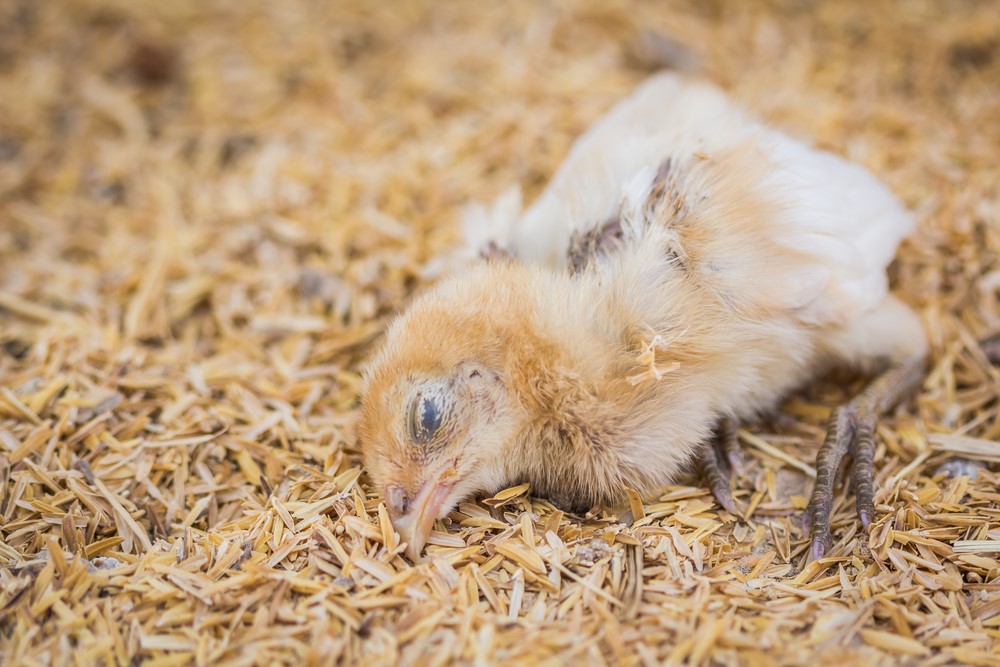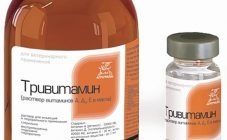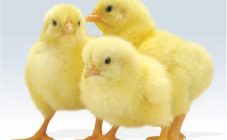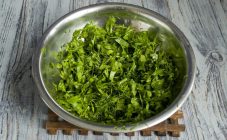Content:
- General rules for caring for chickens at home
- How to tell if a chicken is sick
- Diseases of day old chickens and broilers
- How to drink chickens from worms
- Coccidiosis (eimeriosis)
- How to treat rickets in chickens
- Pullorosis in chickens: symptoms and treatment
- Frequently asked questions about chicken diseases
- Prevention of diseases of young animals
Chickens, like all birds, are susceptible to disease and sensitive to unfavorable conditions of keeping and feeding. This article will tell you about the most common diseases of chickens and their treatment at home.
General rules for caring for chickens at home
From the first days of life, a small chicken needs warmth, light, clean water and quality food. The temperature of the day-old chick is 35 ° С. From the second week of life, it is reduced by 3 ° per week to 20 ° C. A fully feathered chicken is able to do without an additional heat source.
The light in small chickens should be on day and night. A 40-watt bulb is enough for 5 m² of floor space.
It is also worth spreading the bedding in the brooder: disposable diapers are laid for babies or large bran is poured, older chickens - wood chips.
Clean water should always be in the cage. Feed - dry compound feed or grain mash - is poured fresh. It is important to keep drinking bowls and feeders clean.
How to tell if a chicken is sick
A healthy chick is mobile and cheerful. He reacts with curiosity to new food, runs away from trying to pick it up. His fluff is clean, his bottom is free of droppings.
Weak or sick baby:
- lethargic and indifferent to everything;
- stands with his head and wings down and does not try to move away if touched;
- suffers from diarrhea and eye discharge;
- refuses to eat, as a result of which he is losing weight;
- throws back his head and falls to one side;
- may go blind;
- in grown chickens, feathers stick out in different directions, wheezing is heard when breathing.
All these manifestations are a reason to urgently take measures to save the bird.
Diseases of day old chickens and broilers
Receiving chicken offspring in his farm, the owner often encounters problems in newborns.
What to do if the yolk is not drawn in and the umbilical ring is not closed? This problem occurs if the incubator was not high enough temperature and excessive humidity.
It is wiser not to torment the baby and remove him if the hole in the navel is too large. If a small piece is visible from the yolk, the chick can go out. To do this, they put it on the back, holding it in such a state that it does not break out.Tuck the yolk into the belly with the tip of a clean napkin and bring the chicken to a light bulb (or other directional heat source). Under the influence of heat, the navel begins to close. When the edges of the hole are closed, the skin is moistened with iodine or brilliant green. The chick is placed separately from other chickens on a clean diaper. With a favorable outcome, the future laying hen or cockerel will not differ in any way from his fellow tribesmen.
Another common ailment in babies is leg weakness. Broilers are most often affected, as they are characterized by a rapid increase in live weight. Outwardly, the ailment is expressed in the fact that the chicken often sits, its gait is uncertain, and its legs move apart.
To strengthen the joints will help:
- introduction of vitamins into the feed (tetravit, tetrahydrovit, chiktonik);
- irradiation of babies with UV rays (blue lamp) for about 10 minutes. daily.
The bedding in the brooder should be made non-slippery (rough paper, cloth). Sometimes tying the legs with a woolen thread helps so that they do not disperse to the sides and the chicken does not sit on the twine.
How to drink chickens from worms
Worms are a common occurrence in animals in private yards. The eggs of the parasites get to chickens with fresh grass, especially if it was picked in damp and swampy areas. Earthworms and other insects are spreading worms.
Symptoms of worm infestation in chicks are:
- lack of appetite;
- exhaustion;
- lethargy;
- diarrhea;
- blanching of scallops;
- with severe infection, worms can be seen in the droppings.
Chickens should be drunk immediately with anthelmintic drugs (alben, piperazine, flubenvet, levamisole). The dosage of the drug is calculated based on the weight of the chickens and the number of heads. The medicine is mixed with a small portion of the feed and given to the bird. Some drugs are available in the form of a suspension or paste, it is convenient to inject them individually for each baby into the beak.
Coccidiosis (eimeriosis)
The disease belongs to the parasitic group. The causative agents are small parasites of coccidia, which parasitize in the intestine, causing inflammation (when a diseased specimen is opened, the intestines are swollen with the presence of foci of hemorrhage), and in the liver. Most often, monthly chickens and older individuals suffer. The parasite is excreted with droppings on the ground, from where the bird pecks.
The pest reproduces especially rapidly in warm and humid weather.
How to treat chickens for coccidiosis? Coccidiovitis is used (2.5 g per 1 kg of feed) for 7 days. As a preventive measure, the drug is fed at a dose of 1.5 g per 1 kg of feed. In addition to the indicated medicine, they are used:
- coccidin 10;
- madikos;
- avatek;
- aviax.
All drugs are given in strict accordance with the instructions.
How to treat rickets in chickens
Lack of vitamin D begins to show itself at the age of 15 days. This is manifested in the loss of interest in food and general lethargy, weakness. Young growth begins to sleep more, gait becomes shaky.
It is recommended to be treated by the livestock:
- the introduction of fish oil into the diet (1 tablespoon per 1 kg of feed);
- tricalcium phosphate (15 g per 1 kg of feed);
- vitamin D concentrate (2 drops per 1 kg of feed).
Pullorosis in chickens: symptoms and treatment
Poultry infectious disease pullorosis or typhus is a dangerous disease transmitted from a sick individual to a healthy one, or through chicken droppings.
The symptoms are as follows:
- lethargy and weakness;
- the chick lowers its head and breathes heavily without opening its eyes;
- foamy yellowish diarrhea begins.
If chick pullorosis is diagnosed, treatment should be started immediately. Therapy consists in the use of antibiotics of the chloramphenicol group, sulfonamides, tetracycline:
- florikol - drink at a concentration of 0.1% for a week;
- biomycin - an aqueous solution, at a dose of 8 - 10 mg per 1 kg of live weight of a bird, course - 1 week;
- baytril - 5 drops per 1 liter of water, course 3 days;
- ditrim - 1 ml of the drug per 1 liter of water, the course is 5 days.
Frequently asked questions about chicken diseases
- Why are chickens fed black peppercorns or hot red peppers during illness? Poultry farmers believe that hot pepper is a natural disinfectant and destroys pathogens and parasites. In fact, a whole pea fed to a chicken will burn its esophagus, causing more harm than good.
- The chickens have crumpled, dropped their wings and die, what can you do? Symptoms speak of too many diseases. It would be correct to collect the droppings of a chicken or a dead individual and take it to a veterinarian for analysis. If it is impossible to do this, the livestock can be cured with a broad-spectrum antibiotic.
- Why do chickens have ruffled and broken feathers? Most likely, this is a symptom of the presence of parasites on the skin. These can be lice, feather eaters, red chicken mites. To combat them, they carry out general cleaning in the chicken house and disinfection.
- Why do the chickens back up? The most likely reason is a lack of a vitamin or trace element, or a genetic abnormality. If the phenomenon is massive, then the diet of babies should be reviewed.
Prevention of diseases of young animals
In addition to ensuring cleanliness, warmth in the chicken coop and high-quality feed, it is necessary to carry out medicinal prophylaxis of the livestock. Should:
- soldering birds from worms every 4 months;
- in advance to give drugs for infectious diseases to chicks at the age of 1 and 4 months.
Only after that, the chickens will not get sick from a caring and clean owner, but only please with weight gain and active behavior.
